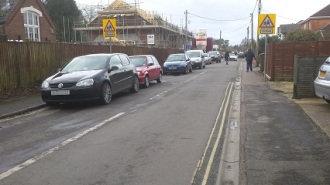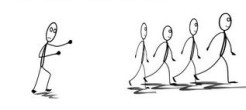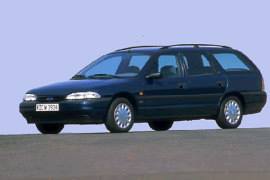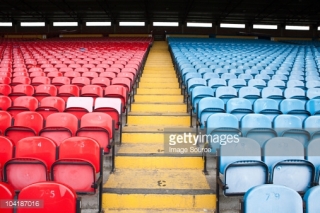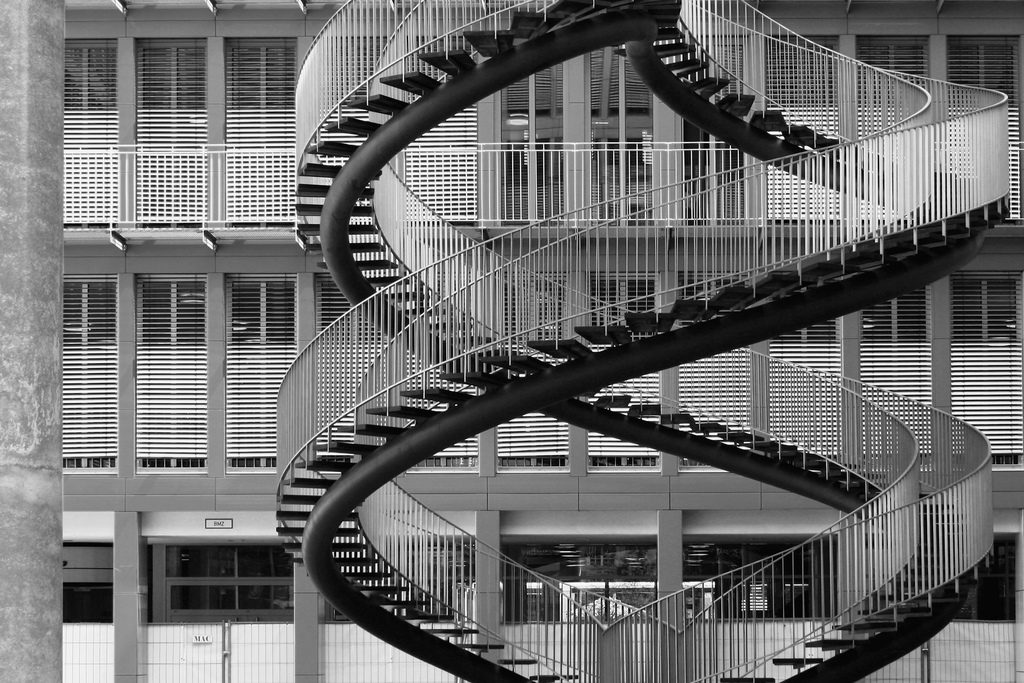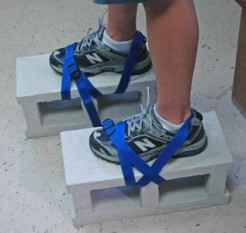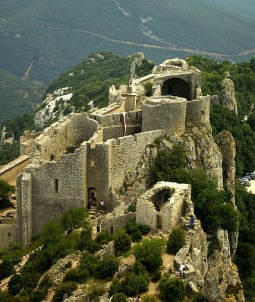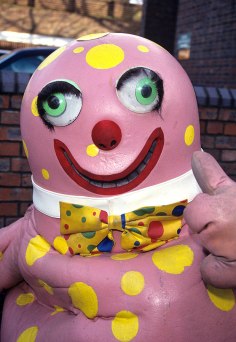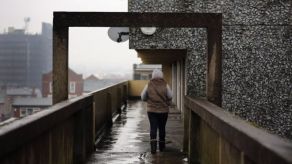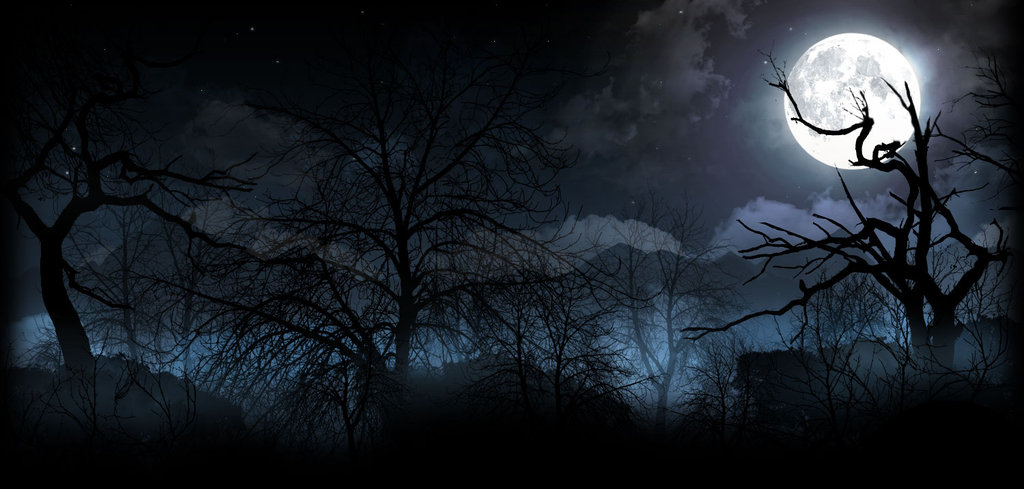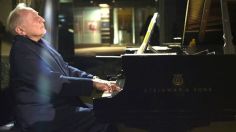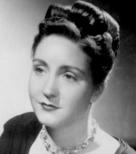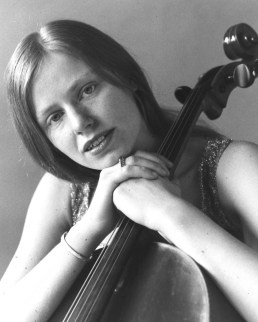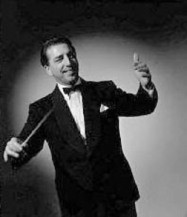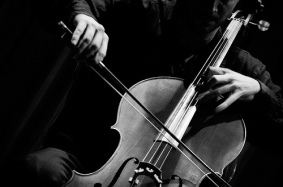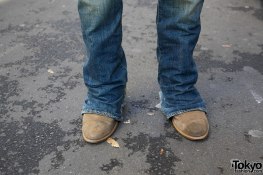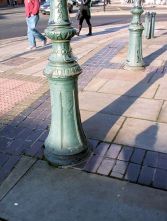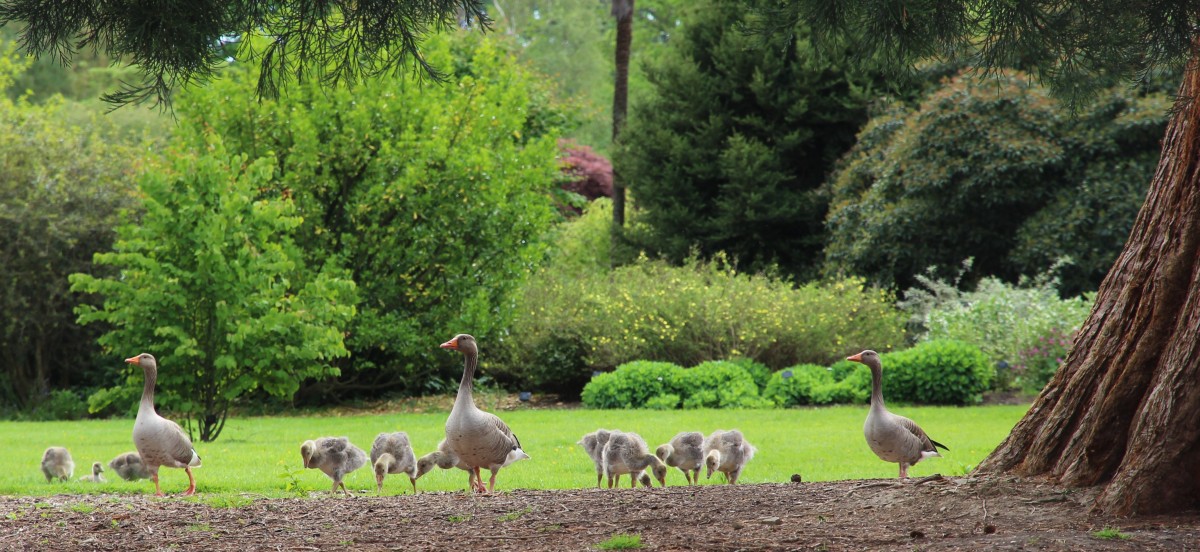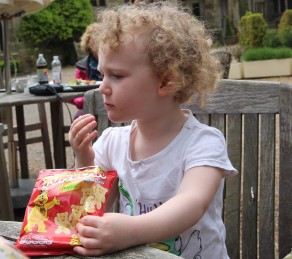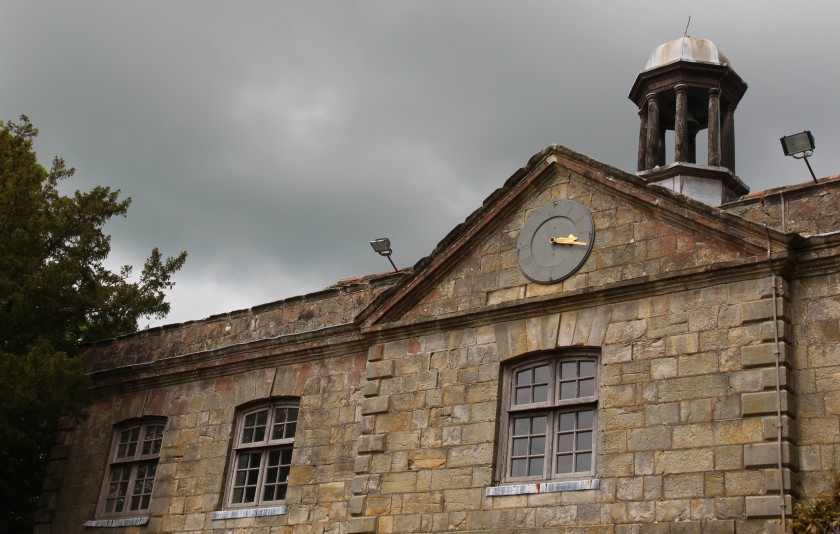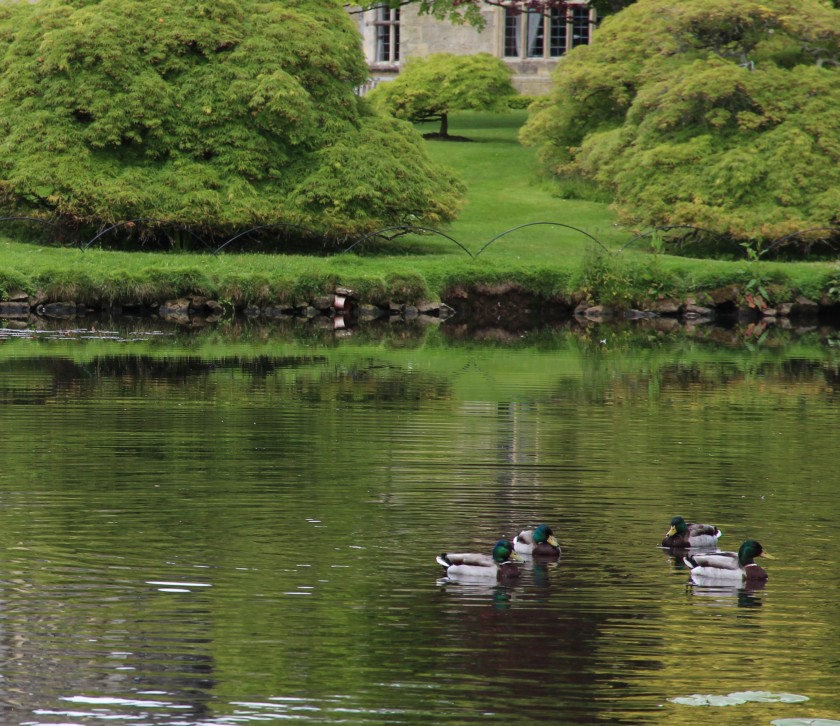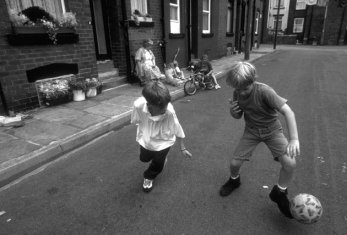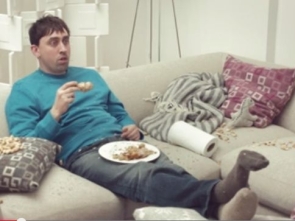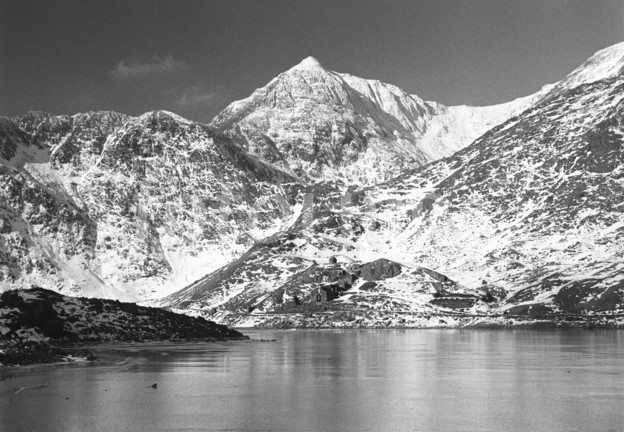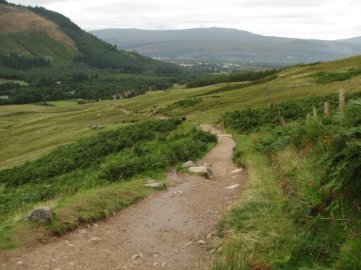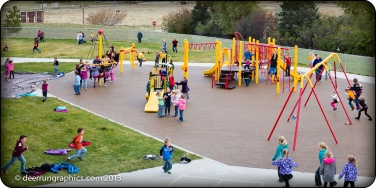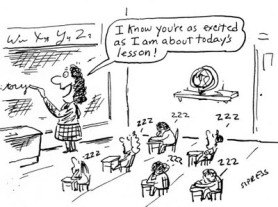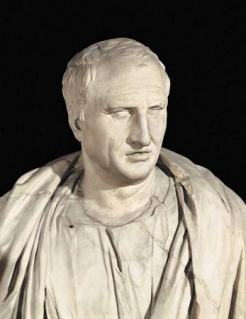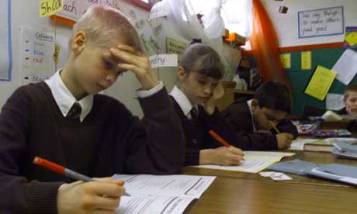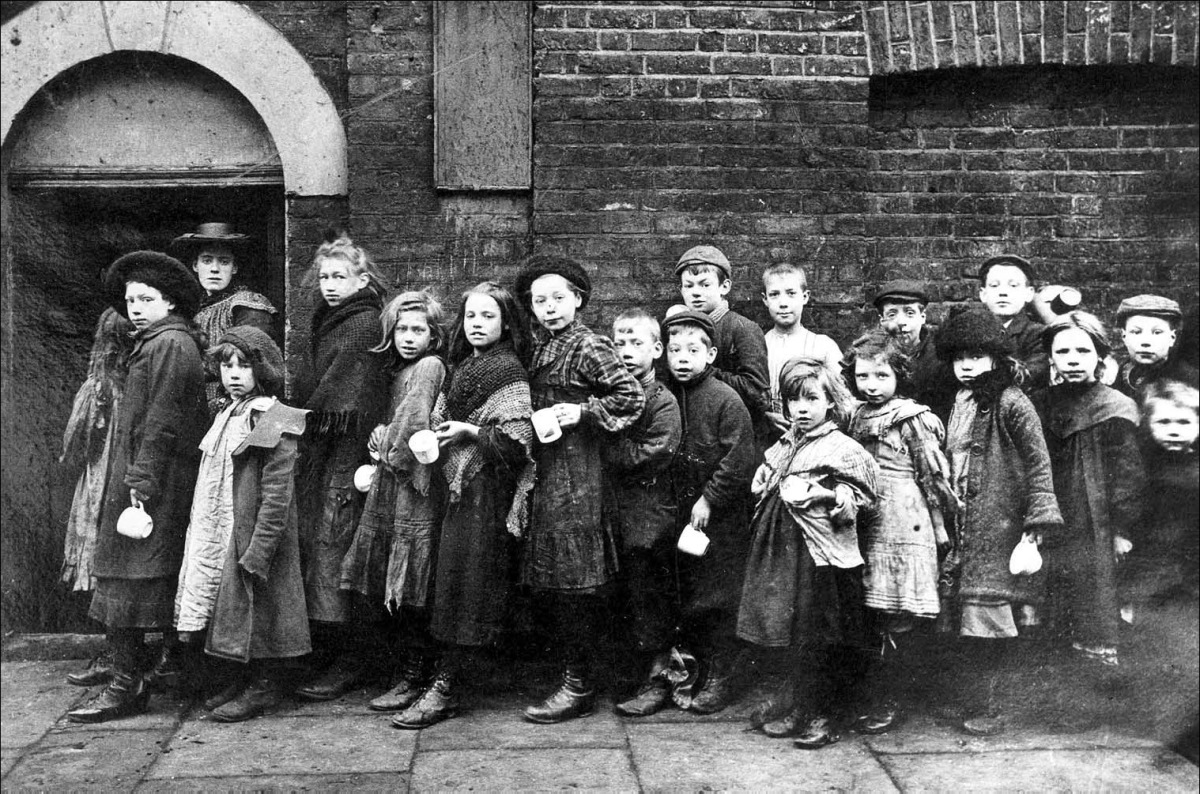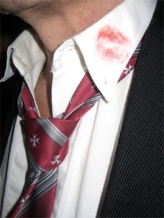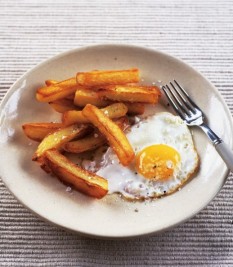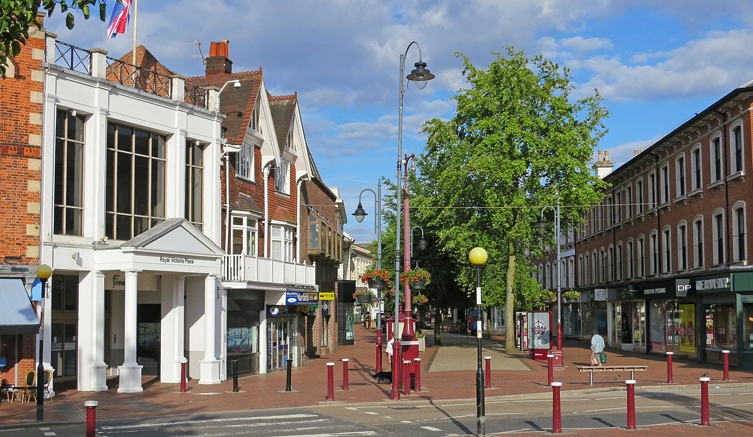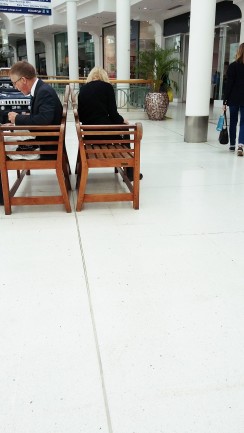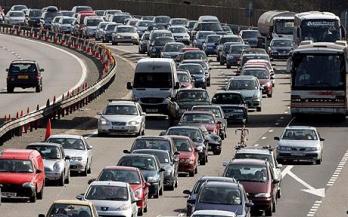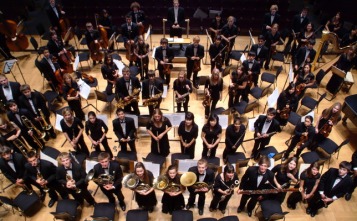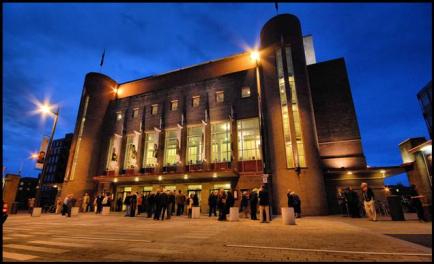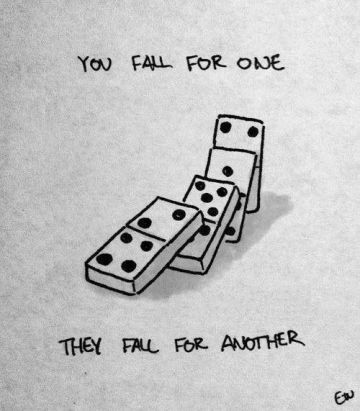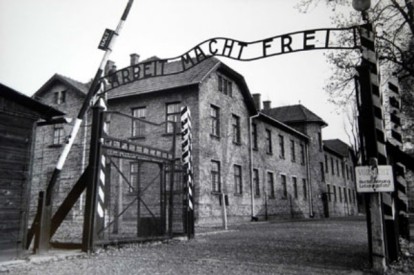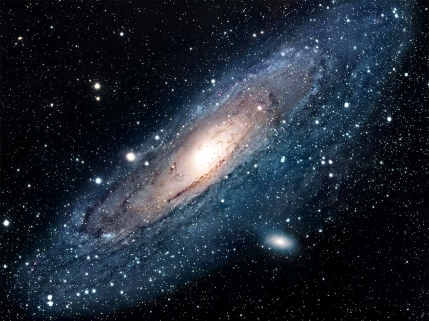Tom looked ahead. It was a strain to bend his neck. Then he remembered his father’s words:
“Don’t waste time or energy looking at the finish. Look at the ground and open your ears; you’ll look ahead when you need to.”
On the sound of the gun, he flew from the blocks. With arms pumping and legs pounding, Tom eventually looked to the line. There was no-one in front of him. He could hear the frantic pulses of his punching breath. The line came and went. Tom tumbled onto the track. He lay there panting, looking at the sky.
“Have I won?” It was only a passing thought. Tom didn’t care. He was just glad it was over. All that training; hour upon hour running up and down while the world lay sleeping. Days in the rain and wind, fighting the stopwatch, trying not to answer back to his over critical coach. Then he remembered his father and what he would have to deal with. Win or lose, the consequences filled Tom with a sense of dread. As stared blankly at the swirling clouds overhead, he felt the approaching march of his father’s footsteps. He could see a tall dark-suited figure tower above him Tom still didn’t care about the result. Then he heard the sigh.
“What did I say? What did I say?” Tom’s dad had an annoying habit of repeating himself. Tom closed his eyes. “You jumped off the blocks, you just jumped out of them. Then you missed your rhythm; missed your rhythm and ended up flapping your arms. After a strained pause, he looked at his father silhouetted against the fluid sky. “Flapping your arms.” He walked off. Tom sat up to see his coach bounding towards him.
“Nice one Thommo. I’ll check the time again but it looks like you’re below eleven.” Tom smiled back. He didn’t like his father or his coach. The worked him, punished him and always criticised.
“Did I win?”
“Yes, you stormed it,” replied the coach, making a running gesture with his arms.
Tom let his head drop. Despite winning, his coach and his father would find something to criticise.
“You’ve got hockey tonight.” Tom looked to his father. “Hockey, tonight.” Tom sighed a silent sigh. It was no good arguing or trying to say that he was too tired or had no real interest in chasing a vicious hard ball round a field with a big stick. This is what is was like. Every day of the week had some extra little activity. “It won’t do you any harm Thomas. It’s good to keep busy. We’re known as a sporting family. And you will get your time below the under-sixteen record.”
Tom was finding it hard. He liked doing things and keeping busy. He liked the friendships he had made. He even liked winning things and being on show. But once in a while, all he wanted to do was go home and do nothing. Tom was not into gaming or ploughing through social media. In fact, he hated his phone. While almost everyone he knew would spend every spare minute of their spare time with their noses buried in their tiny screens; laughing or shouting “Oh my god” with their virtual friends, Tom kept his own phone in his bag. Days would go by without it being switched on.
On those rare occasions when there was no after-school club to go to and everyone would be doing their own thing, Tom liked to read about the countryside around him. Whether it was in a book or online, he wanted to know where every street and footpath would lead to. He was constantly playing different birdsong so he could recognise it when he heard it live.
“Can you hear that chaffinch?” Tom would say. No-one ever answered him. Mum was always texting and Dad would give him the look of death before launching into a rant about his training.
“You’ve got the nationals next week.” Tom would close his eyes as he heard his father’s reiteration. “Next week! You can’t let your training go.” His look of passive resignation always prompted more: “See if you don’t impress in the nationals you won’t get the opportunities for the training. They want boys who are keen and hungry.”
“But I am keen,” Tom would reply. “You’re keenly complacent.” His father’s comments prompted a long silence. But it was no a calm silence. This was a sharpened spring-loaded mousetrap of a silence. Tom certainly felt trapped. If he tried to break out the jaws of his father’s discipline would snap around him. Tom’s whole life was being mapped out before him and there was nothing he could do about it.
The journey between the track and home went through Hunger’s Woods. The road would twist and turn amongst the bright green tangle of trees. Just before the top of the hill, the road began to descend into town. At this point, there was a clear path leading to the highest point. It was not much higher than the road but Tom knew it gave a great view over town and beyond; at least that was what Danielle had said. Danielle was the nine-year-old daughter of Andy and Donna, the next door neighbours. She would chat to Tom while both fathers bragged to each other about their sons’ sporting prowess. She liked to talk about the walks she did with her mum and Monkey, their grey Lurcher.
“Can we stop here so I can see the view?” Tom was always wary of being ridiculed. Tom did not know why he asked on that occasion; the mocking followed immediately
“Views are for girls.” Tom said nothing. The mousetrap returned.
“It’s a wonder he didn’t take off.” Tom’s mum looked up from her magazine. “He was flapping that much it’s a wonder he didn’t take off.” Mum looked back down.
Upstairs, Tom sat on the edge of his bed and stared at the house across the road. The front garden was divided into four sections. Separated by a low hedge, each quarter had a centrepiece. Tom’s favourite was the one with the rose covered archway. The man he saw was always trimming a branch and gently caressing each flower head. Tom did not know who he was. Father did not talk to the people across the road. They had a bigger house.
“Clarinet.” Father’s voice boomed from the bottom of the stairs. “I can’t hear the clarinet.” Reluctantly Tom put the three pieces of his clarinet together and began to play one of his old tunes. It was a jolly piece from an old exam book. He didn’t need the music. The door burst open.
“You’ve got your grade five in two weeks.” Tom stopped and drooped his head. “Grade five. Where are your scales?” Tom kept his eyes closed for a few seconds. He returned the mouthpiece to his lips and started one of his dreadful scales. The door closed and he was left alone. But he wasn’t alone. He couldn’t even play for pleasure without incurring his father’s criticism. Yes he did have an exam coming up. Yes he did have to practice his scales. But why could he not do it his own way? Why was his father constantly on his back?
“Are you ready for hockey?” The sudden booming of his father’s voice made Tom jump. He was lost; lost in his imaginary wanderings. After some pained clarinet scales, Tom had immersed himself in some local mapping. He had the satellite map of the hill in Hunger’s Woods. With his finger, Tom traced the route he wanted to take. He was trying to memorise it.
The week before, Danielle and her mum called at Tom’s house. They were going to take their dog for a walk and thought they’d offer him the chance to join them. Tom did not know this at the time. He had heard the door bell but had no idea who it was. He had no idea that his father had been downright rude to them, announcing that his son had far more important things to do. Dog walking was a pointless exercise for a future champion.
It was only when he was being packed into the car along with his kit that Danielle came bounding down the driveway.
“Tom, Tom. We’re taking Monkey to the hill. Do you want to come?” Tom looked at his father. “I told you before.” His father’s face grew red. “He doesn’t do dog-walking.” Danielle waved to Tom as they drove past her and raced off along the road.
“Had she asked before?” Tom asked after a long strained silence. His father mumbled disapprovingly. “When did she ask before?” Tom rarely pressed his father. There was a long sigh.
“The other day.” He turned to his son. “And?” The silence returned. It remained until the end of hockey, when there were things to be said about Tom’s deteriorating technique and how he was becoming prone to distraction.
But Tom began to mull over it. It went round and round, churning in his brain. He missed a chance to go up the hill. He missed it because his father did not bother telling him. It raged on through every waking hour. Firstly it was distress. He was distressed because it was a missed chance. Then distress became determination. He was going to go up that hill.
Sometime in the middle of the night, Tom went onto his pad. With the mapping programme, he began to plan his escape. “Four point three miles? I can run that.” Although Tom’s strength was speed, he was a natural athlete. Running was second nature. At school he often went on cross-country sessions. He liked the solitude. There was no-one around to bark their pathetic orders. Then thought about running times. “How long would it take me? Half an hour? Forty minutes?” It was turning into a masterpiece of meticulous preparation. As he was finishing, the morning light began to appear behind the curtains. There was one last thing to be decided; when?. Tom thought carefully about an opportune time. He had even prepared his road running gear for a quick getaway. Then without any more thought he put it on, crept out of the house and began to run.
Outside the air was clear and fresh. An early morning shower had left the verges glowing with spring moisture. Tom went into his cross-country rhythm. This was better than school. This was better than a sarcastic coach or a father too wrapped up in his own little cloud of self-importance. Going up the hill, Tom felt the pressure from his legs. It was the pressure of the sprint but in slow motion. He had memorised his route. There was only a mile on the road. Before long he was running over the soft green carpet of bright glistening grass. The occasional splash of ground water and the shivery streak of long grass and fern gave an instant of refreshing coolness.
The hill was getting steeper. Up ahead was the top. Tom sprinted. As he reached the highest point he was laughing uncontrollably. Still laughing, he turned round to take in the view. He gasped. It was magnificent. Below him was the sleepy little town. The daylight had arrived and tiny figures were beginning to scuttle about as the day was starting. Tom sat down. He was sweating from the run. The dampness did not matter. This was the most joyous moment of Tom’s short life.
Tom was six when the news came. His brother Simon was at the hospital. He was having tests. That is what he was told. Tom could not remember the details but he could recall missing Simon not being at home. They ran and played together. Simon knew all sorts of secret places they could hide in. But Tom didn’t know what a tumour was. No-one explained it to him. But he knew where the brain was. He wasn’t allowed to go to the hospital. There were hours and days spent with Aunt Lindsey. Film after film, board game after board game and late night after late night. Tom never had fun with Aunt Lindsey. Her boyfriend Darren hated him being there.
One day Tom’s mum took him aside and told him Simon was never going to come back home. She looked dreadful; even to the eyes of a six year-old boy. Her hair was greasy and her face was thin and tight. She stank of cigarette smoke. Long nights followed. These were nights of tears, tempers and an absent father. Tom’s father smelt of whisky.
After they moved to their new house next to Danielle and monkey, Tom’s father began to come home at the right time. It was in time to eat as a family and in time to take Tom to training. The training became constant. Even at the age of seven, Tom found himself embroiled in an intense round of daily work-outs. When the hockey started, the weekends began to disappear. Like every young boy, Tom wanted to please his parents. He took part without complaint. But it was too much. He was not Simon. Like his brother he was now fourteen and wanted to do his own thing. He loved the country. He loved nature. He loved his own company. He did not want to be a champion sprinter. He would look at pictures of athletes’ distorted bodies. The last thing Tom wanted was a neck like a tree-trunk.
When the morning sun warm the ground and pockets of steam rose all around him, there was a familiar voice.
“Monkey fetch.” The laughter was unmistakable. Donna, Danielle and monkey came over the brow of the hill. Donna was surprised; Danielle was delighted.
“Look mummy, Tom’s here.” Donna looked at Tom.
“Shall I tell them?” asked Donna. Tom nodded. She produced her phone and took a few steps back down. She tilted her head and placed the phone against her ear. She stretched out with her other hand at some unseen object and raised her eyebrows. Tom smiled. It was not the sort of thing he’d noticed before but every woman or young girl he knew used their phone in the same way. The style was identical. He took a deep breath. There was going to be some explaining to do.
Danielle tried to show Tom how Monkey could catch his ball. She tried a couple of times before she sat down next to her big friend.
“Do you like it here?” she asked.
“I love it here,” replied Tom with his eyes fixed on some distant object.
“I love it too,” said Danielle looking the same way. She sat down next to his and rested her head on his shoulder. Donna came back up the hill to join them
“I’ll take you home if you like.” She looked up at the blue morning sky. “When we’ve finished here.”




